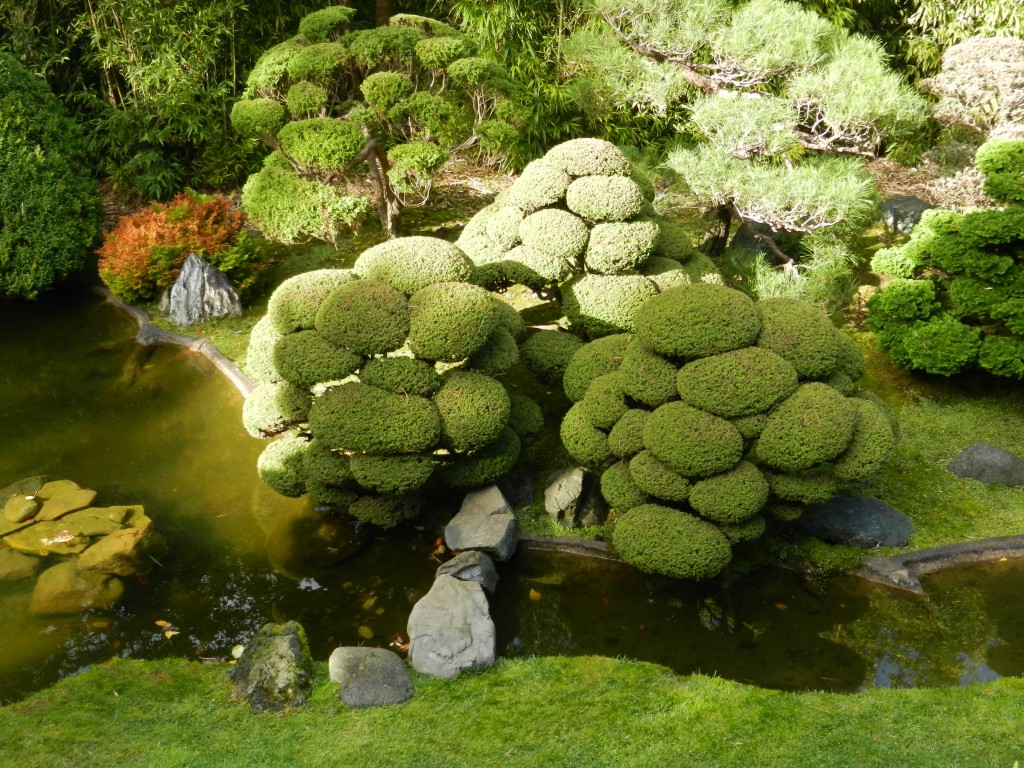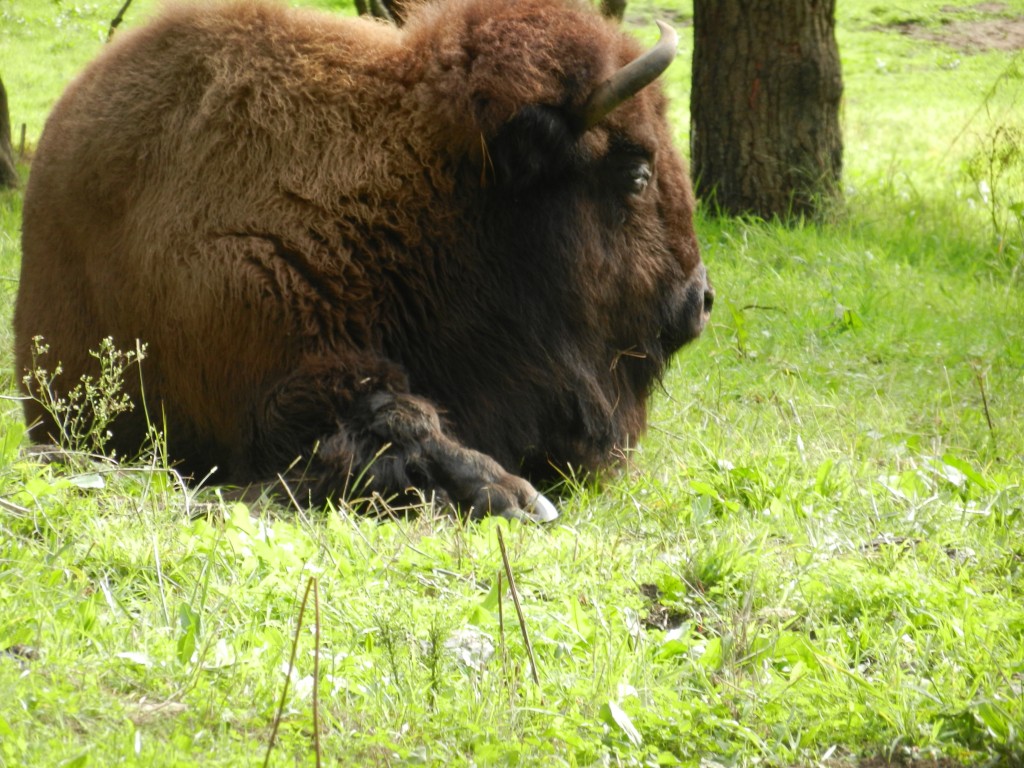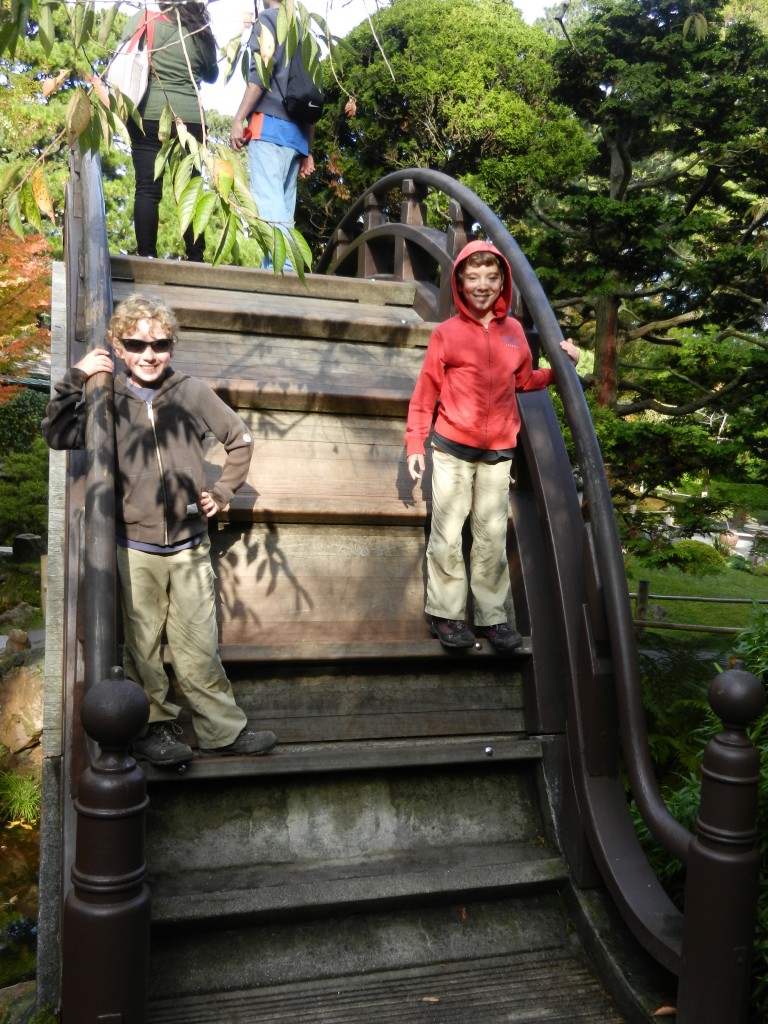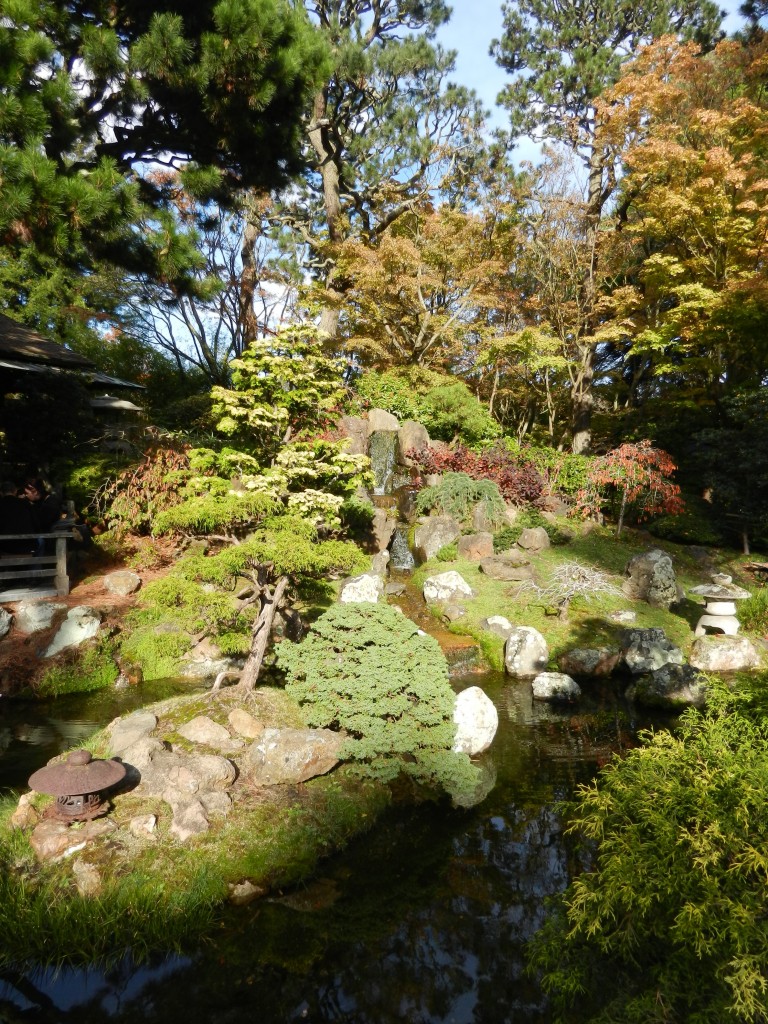Bison Bill and the Japanese fortune cookies

We walked around the huge Golden Gate Park today for a bit of a lesson in American cultural history. Or more precisely a little slice from a particular point of view.

Our main gaol was the large field housing American bison. It turns out that the things people generally call buffalo, a la Buffalo Bill, are in fact American Bison. The buffalo name came from settlers more familiar with the African buffalo, which is not the same thing at all.
Under any name, they were hunted to the verge of extinction partly to feed the voracious appetite of the workers on the trans-continental railroad and partly to deprive the native Indians of their primary source of food. In 1891 some of the few remaining bison were brought to San Francisco and housed in a field in the park where their descendants have lived ever since. It’s a sad story of the largest native animal, that roamed the continent in herds over 100,000-strong, being reduced to a few solitary specimens in a city park.

Our next destination was the Japanese Tea Gardens. These were also established in the late 1800s and remain a pretty little oasis in the midst of the Golden Gate Park. The Gardens were run by a Japanese family in the early 1900s: they created a forest of dwarf or bonsai plants and introduced fortune cookies to the US and, by extension, the English-speaking world. Fortune cookies I hear you cry, but they are Chinese aren’t they? Well therein lies the story.
In 1942 in the wake of Pearl Harbor, the US Government completely illegally interned a huge number of US citizens of Japanese extraction, including the Japanese family who had run the Gardens since the late 1800s. The family left their collection of dwarf trees in the care of a local, who sold them. The person who bought them eventually bequeathed them back to the garden in her will so that the Garden today has a great collection of interestingly under-developed trees.

The family running the Gardens also introduced fortune cookies to the US, based on similar items made for Japanese temples. In the wake of the Executive Order 9066, the Gardens were renamed the ‘Oriental Gardens’ and the fortune cookies were re-branded and quickly re-associated with China, which had no historical connection with them at all.
All this resonated with us strongly as we’d listened to a podcast about Order 9066 and the internment of the Japanese Americans on our drive up to San Francisco. The podcast had ended with the presenters saying that at least lessons had been learned and history would not repeat – which was greeted in our car by universal screams of ‘Guantanamo Bay!’.
So where does all this take us? It probably takes us to some alternate history with Bison Bill going into a Japanese restaurant and ordering a fortune cookie.
More particularly for us it took us to a nice Japanese lunch in the park and then a play in a great playground further up the park. There’s only so much time you can spend ruminating on the follies of history.
More information about the approximately 30,000 bison now living in conservation herds in North America:
http://www.nps.gov/yell/naturescience/bisonqa.htm
(I had not realized that about 400,000 bison were being raised as livestock. That’s a lot of buffalo meat!)
Yes, the US keeps repeating its mistakes. The latest vote out of the Senate reaches new lows re: Guantanamo….